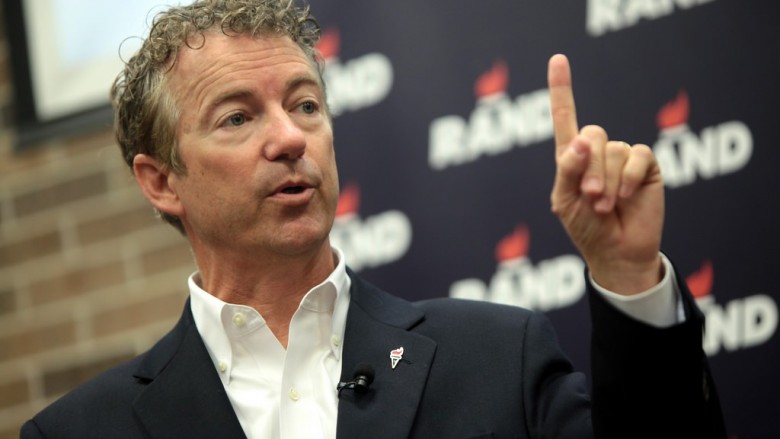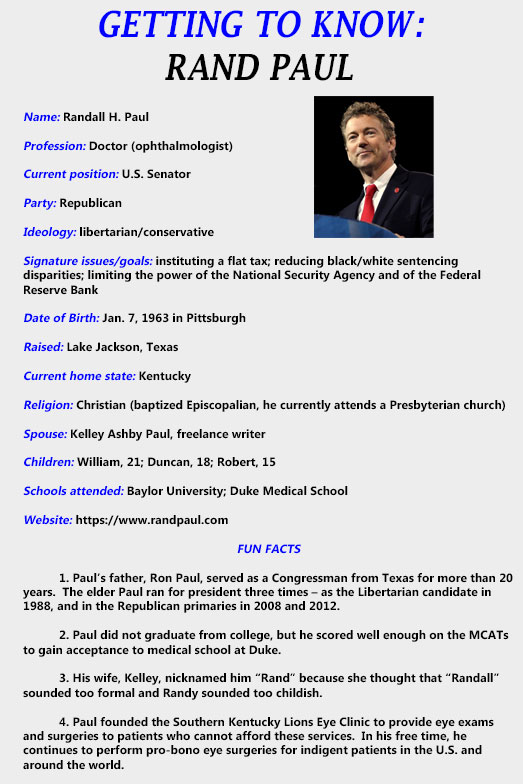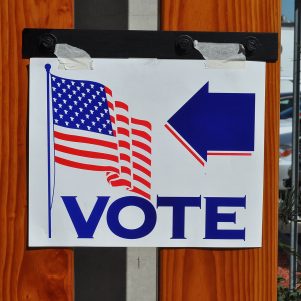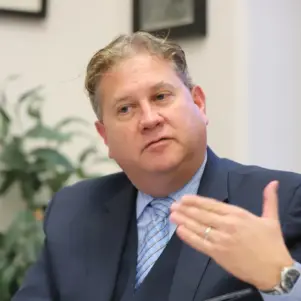Paul’s greatest asset is also his biggest liability
By Derrick Perkins | September 30, 2015, 5:49 EDT
 Photo courtesy of Flickr.com
Photo courtesy of Flickr.com This article is part of a series of profiles of the 2016 presidential candidates that will appear on the NewBostonPost in the months leading up to the nominating conventions.
Senator Rand Paul of Kentucky is known for his willingness to upend the political order. He bucked the Republican Party establishment with his 2010 insurgent bid for the Senate, beating a candidate backed GOP leaders. Today, he’s at it again, this time at the national level with his presidential bid.
But while he remains a thorn in their collective side, particularly on issues where national security and civil liberties collide, Paul is more apt to toe the leadership’s line when it comes to things like aid for Israel and combatting Islamic State radicals in the Mideast. Edging toward the center on at least some issues may cost him support among Libertarians, where his roots can be found, but it likely helps broaden his appeal to conservative or moderate Republican voters.
Some backers of Paul’s campaign for the GOP 2016 presidential nomination say he is more realist than ideologue, a quality that sets him apart from his father, Ron, the former Libertarian presidential candidate and Republican congressman from Texas. Yet the younger Paul learned much from an early age by helping his father advance a political agenda spurned in turn by Republicans and Democrats alike.
The third of five children, Paul worked in his father’s various campaigns. Long before the younger Paul would harness the Tea Party movement to launch his political career in Kentucky, he helped keep his father in Washington.
As the New Yorker’s Ryan Lizza noted in a 2014 story profiling the senator, “it would be impossible … to describe Rand Paul’s politics without indicating his father’s influence.” Lizza goes on to describe how Paul “grew up steeped in the libertarian political philosophy beloved by his father, and he worked as a strategist on Ron Paul’s many political campaigns, watching as his father’s ideas helped to shape the Republican Party and give rise to the Tea Party.”
Doctor to politician
Paul first gave voice to his own political views as a student at Baylor University in Waco, Texas, in the early 1980s. The biology major regularly penned opinion pieces for the student newspaper. According to multiple published accounts, he joined a secret student organization described by some as an anti-fraternity that apparently relished ridiculing the campus social order.
Another group he joined, the Young Conservatives of Texas, was formed by a group that broke away from the Young Americans for Freedom, rebels who did not like taking orders from above, Lizza said in the New Yorker.
Although Paul never graduated from Baylor, he nevertheless scored high enough on the MCATs to follow in his father’s footsteps and become a doctor. While the elder Paul became an obstetrician after graduating from Duke University’s medical school, his son became an ophthalmologist after attending the school.
Randal “Randy” H. Paul became Rand after meeting his future wife, Kelley Joanne Ashby, in 1989 at an oyster roast in North Carolina. They married a year later. By all accounts, Ashby decided her young doctor needed a more adult-sounding name. Randal and Randy gave way to Rand.
The couple moved to Kentucky – Ashby’s home state – a few years later.
Paul’s rebellious bent was known to neighbors long before he emerged as an insurgent senate candidate or to launch his current campaign for national office. Jim Skaggs, a businessman and former head of the Warren County Republican Party in Kentucky, told NewBostonPost earlier this month that Paul always chaffed at authority.
Skaggs, who developed the Bowling Green subdivision where Paul built a home in 1994, saw that independent streak long before the ophthalmologist campaigned for public office. Paul balked at following the homeowners’ association’s 21-page list of regulations, according to Skaggs.
“It was very restrictive, something like Harry Reid would have written,” Skaggs said in an interview, referring to the Senate Democratic leader from Nevada.
The developer said Paul was surprised. “He thought once he bought the property, he could do anything he wanted. He said, ‘you don’t really mean this.’”
Paul eventually came around, Skaggs recalled. The second surprise came when Paul, who Skaggs knew only as his neighbor and “the best ophthalmologist in Warren County,” successfully challenged the GOP’s anointed Senate candidate.
“Out of nowhere six years ago he entered the U.S. Senate race and, quite honestly, I thought it was a mistake and so did our senior senator, Mitch McConnell, who supported his primary opponent rather openly,” Skaggs said.
Previously, Paul had shown little interest in running for office – at least, within the local GOP establishment, according to Skaggs. He did not attend political functions, Skaggs said.
“We never really thought of him, in the early days, becoming a politician,” he said. “Then he gets in the race and wins it, and from there the rest is kind of history.”
Libertarian role model
The elder Paul’s libertarian philosophy can be seen in his son’s outright hostility toward the Federal Reserve, skepticism about the needed size and footprint of the U.S. military abroad, and intense criticism of the National Security Agency’s domestic data-collection program, which kept tabs on Americans’ calling history. Like his father, Paul has no problem with legalizing controlled substances and prefers to see states decide the matter for themselves. He has received the highest grade among all the major presidential candidates from the pro-legalization Marijuana Policy Project for his views.
As protests – and riots – savaged Ferguson, Missouri, and Baltimore following the deaths of young black men at the hands of police officers, Paul embraced criminal justice reform. The result has been a case of strange bedfellows — the conservative Paul from Kentucky joining forces with liberal Sen. Cory Booker, a New Jersey Democrat, to craft legislation designed to make life easier for juveniles and those convicted of nonviolent crimes.
But although his world-view was shaped largely by his father, Senator Paul has followed his own road.
The elder Paul, a champion of libertarian ideas, marked his political career by eschewing, some would say blatantly undercutting, the Republican establishment. By contrast, Rand – although still an irritant to party leadership – has taken a more conciliatory approach.
As he prepared to formally announce his presidential bid in April, the Washington Post observed that Paul seemingly had softened some of his libertarian views, most notably on foreign policy.
Once a staunch opponent of all foreign aid, Paul now argues only for reducing the amount of money sent overseas, while maintaining financial support for Israel, a staunch U.S. ally in a troubled region.
His views on the appropriate response to the Islamic State also have shifted as the radical group has gained ground in Iraq and in war-torn Syria. After initially viewing U.S. airstrikes in Syria with skepticism, he has increasingly supported U.S. intervention there.
Nick Gillespie, editor-in-chief of the libertarian outlet Reason.com, told National Public Radio in February that he regards Paul as “libertarian-ish,” citing the senator’s Islamic State position.
“It’s interesting that within the Republican candidates, he is by far and away the most outspoken non-interventionist in terms of foreign policy,” Gillespie said. “At the same time, among libertarians, people are like, oh, this guy is the second-coming of Attila the Hun.”
Domestically, Paul favors a federalist approach to moral issues such as same-sex marriage and abortion. He personally believes that marriage should be between one man and one woman, and he takes the view that life begins at conception, but he prefers to leave the regulation of these matters to the states, according to his campaign website.
Realist not purist
In an exhaustive 2014 story about Paul’s evolving political views, the Washington Post reported that he is not a “purist like his father,” but, rather, a politician. Paul’s aides and closest confidantes say the senator is simply a “realist.”
Despite attempts to fuse his libertarian streak with traditional GOP values, recent polls of Republicans and likely voters show Paul with fewer than 5 percent nationally and in New Hampshire, well-behind nonpoliticians like Carly Fiorina, Donald Trump and Ben Carson, as well as establishment stalwarts like former Florida Gov. Jeb Bush and Florida Sen. Marco Rubio.
By becoming more mainstream, Paul has arguably lost some his father’s libertarian following. Rand Paul “has not been able to keep his father’s coalition together,” Kyle Kondik, managing editor of Sabato’s Crystal Ball, a newsletter produced at the University of Virginia’s Center for Politics, told the NewBostonPost.
And yet, Paul’s outsider status has made it a challenge to gain Republican primary supporters. Though Paul and his supporters may celebrate his tendency to flout the party line, it’s not a recipe for success, Kondik said.
Just 4 percent of registered Republican and GOP-leaning independent voters say that they would likely support the Kentucky senator in a CNN/ORC International poll conducted after the CNN’s September Republican debate.
“Putting Trump and Carson and Fiorina aside,” Kondik said, “it’s an insiders’ game, winning a presidential nomination, historically.”
The Crystal Ball newsletter lists Paul as a third-tier candidate, an “influencer.”
Those who know Paul personally say he considers his outsider status to be a badge of honor. Brian Darling, the senator’s former communications director and general counsel, described him in an interview as passionate about his beliefs and willing to fight for them.
“He’s the kind of guy that leads from the heart, somebody who has very strong beliefs, and he is willing to stand up for them,” said Darling, who works for a political consulting firm in Washington.
That persona informs his style of governance.
“He’s more of a leader by example,” Darling said. While Paul’s positions were unpopular sometimes, “he’s driven by what he believes and he believes what he is doing is correct.”
One such example is Paul’s notorious 13-hour filibuster in 2013, which held up the nomination of John Brennan as director of the Central Intelligence Agency. Paul used the nomination to gain the Senate floor, criticize the agency’s use of drone strikes and push back against the White House’s claim to ultimate authority on when to hit a target, particularly if U.S. citizens might be killed or injured in the process.
“Are we so afraid of terrorism, are we so afraid of terrorists, that we’re willing to just throw out our rights and freedom?” Paul asked during the marathon speaking session.
Afterward, Paul told reporters the filibuster was unplanned.
“He stood up for the Bill of Rights, the concept of a trial by jury, the idea that you’re innocent until proven guilty,” said Darling, who worked for Paul at the time. “That was an educational moment.”
Paul’s independence could be his greatest asset – and curse – politically. Compared with rivals vying for the GOP nomination, his fundraising efforts have been underwhelming. Coupled with his low poll numbers, it is hard to see how Paul can blaze a path to the White House, Kondik said.
“The people who don’t like him – the party leadership and Washington hawks – they’re never going to like him. He also hasn’t really retained that other base of support that he has from his dad,” Kondik said. “He has tried to offer a light version of his father and you end up disappointing everyone, which I really do think is where he’s at.”
Other candidate profiles:
Marco Rubio, once the protégé, steps out of the shadows
Kasich pitches from the heart to woo NH voters
Rick Santorum: An interview about ‘Bella’s Gift’
Ben Carson’s star rose from rough beginnings
Cruz stands apart in Senate, earning cold shoulders












